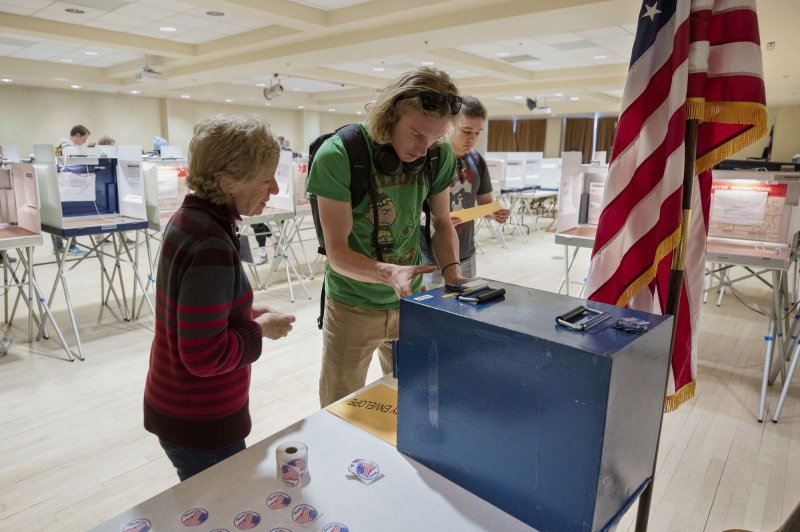Wisconsin's Supreme Court denied an executive order by Gov. Tony Evers to shutdown Tuesday's primary election because of the COVID-19 pandemic. File Photo by Bob Strong/UPI |
License Photo
April 6 (UPI) -- Wisconsin's primary election is set to go on as scheduled Tuesday after high courts blocked efforts to shut down the polls and extend absentee voting due to the COVID-19 outbreak.
The Wisconsin Supreme Court issued a 4-2 decision opposing Gov. Tony Evers' executive order to postpone the election issued 18 hours before the polls were set to open on Tuesday and later Monday the U.S. Supreme Court blocked an order by a federal judge extending the deadline for Wisconsin voters to return their absentee ballots.
Evers ordered a shutdown of Tuesday's presidential preference primary election suspending in-person voting until June 9 amid more than 2,000 coronavirus infections statewide.
Republican lawmakers who wanted to keep the polls open, however, issued a challenge to the Supreme Court.
"The clerks of this state should stand ready to proceed with the election," Wisconsin's top two Republican lawmakers, Assembly Speaker Robin Vos, of Rochester, and Senate Majority Leader Scott Fitzgerald, of Juneau, said in a joint statement. "The governor's executive order is clearly an unconstitutional overreach."
"This is another last-minute flip-flop from the governor on the April 7th election," they continued. "The governor himself has repeatedly acknowledged he can't move the election. Just last week a federal judge said he did not have the power to cancel the election and Governor Evers doesn't either. Governor Evers can't unilaterally run the state."
In addition to the presidential preference primary, a referendum on crime victims rights and state Supreme Court races, and local offices statewide are also on the ballot.
Earlier this month, U.S. District Judge William Conley extended the deadline to return absentee ballots to April 13 though that has been appealed to the U.S. Supreme Court.
Last month Conley extended the online voter registration deadline to March 30 due to the COVID-19 pandemic.
The U.S. Supreme Court on Monday ruled that ballots must be returned to clerks or postmarked by Tuesday to be counted, saying courts traditionally avoid making significant changes to voting rules immediately before an election.
"Extending the date by which ballots may be cast by voters -- not just received by the municipal clerks but cast by voters -- for an additional six days after the scheduled election day fundamentally alters the nature of the election," the court's voting majority said.
The ruling would force voters who have yet to receive an absentee ballot to go to the polls to cast their votes on Tuesday, which Justice Ruth Bader Ginsburg concluded would leave thousands "quite literally without a vote" as their absentee ballots would not arrive by election day.
"If a voter already in line by the poll's closing time can still vote, why should Wisconsin's absentee voters, already in line to receive ballots be denied the franchise," Ginsburg wrote in a dissent.
As of Sunday, 2,267 Wisconsin residents had tested positive for COVID-19, the executive order noted, and 68 residents had died.
U.S. Surgeon General Jerome Adams warned this week would include an increase in COVID-19 cases and deaths comparable to past national tragedies amid over 300,000 cases and more than 10,000 deaths nationwide already.















